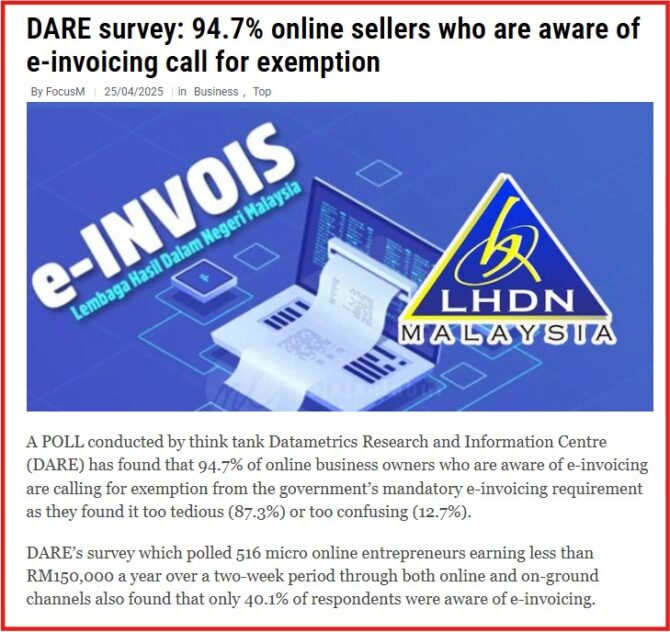THE Malaysian Micro Businesses Association (MAMBA) has warned that the current e-invoicing framework imposed on micro business owners selling via e-commerce platforms may trigger discontent among small entrepreneurs while stifle digital growth.
Under current regulations, e-invoicing is only required for physical businesses with an annual revenue of RM150,000 and above.
However, for businesses that move online via e-commerce platforms, e-invoicing is mandatory regardless of revenue level. By contrast, micro businesses that set up their own websites and remain under the RM150,000 threshold are exempted from the same obligation.
MAMBA cautions that such inconsistent standards could lead to dissatisfaction among micro business owners who are already struggling with rising operational costs, weak consumer sentiment and uncertainty surrounding new tariff adjustments.
For many, the additional administrative burden of mandatory e-invoicing – especially when it is not uniformly applied – may be viewed as unnecessarily punitive.
“The government must avoid policies that burden the smallest players in our economy. Many of our members are one-person operations or family-run stalls just beginning to explore digital sales,” commented MAMBA chairman Tan Peng Beng.

“Imposing e-invoicing on them just because they choose to list on popular platforms is unfair and creates unnecessary complexity.
“A recent poll by DARE found that 94.7% of online business owners who are aware of the e-invoicing requirement are calling for an exemption, claiming that the system is too tedious and unfit for small-scale operations.
“This is clear proof that micro entrepreneurs are not just overwhelmed, they’re actively pushing back.”

MAMBA also highlighted the confusion this policy creates for micro business owners, many of whom are unfamiliar with e-commerce and digital tools.
As requirements differ between selling on an e-commerce marketplace and operating a stand-alone website, the lack of clarity risks further discouraging traditional sellers from embracing online platforms.
As it is, micro businesses are a crucial part of Malaysia’s economy. According to the Department of Statistics out of 1,173,601 micro, small and medium enterprises (MSMEs) registered in 2022, of which a staggering 78.7% or 923,667 were micro businesses. – May 13, 2025









